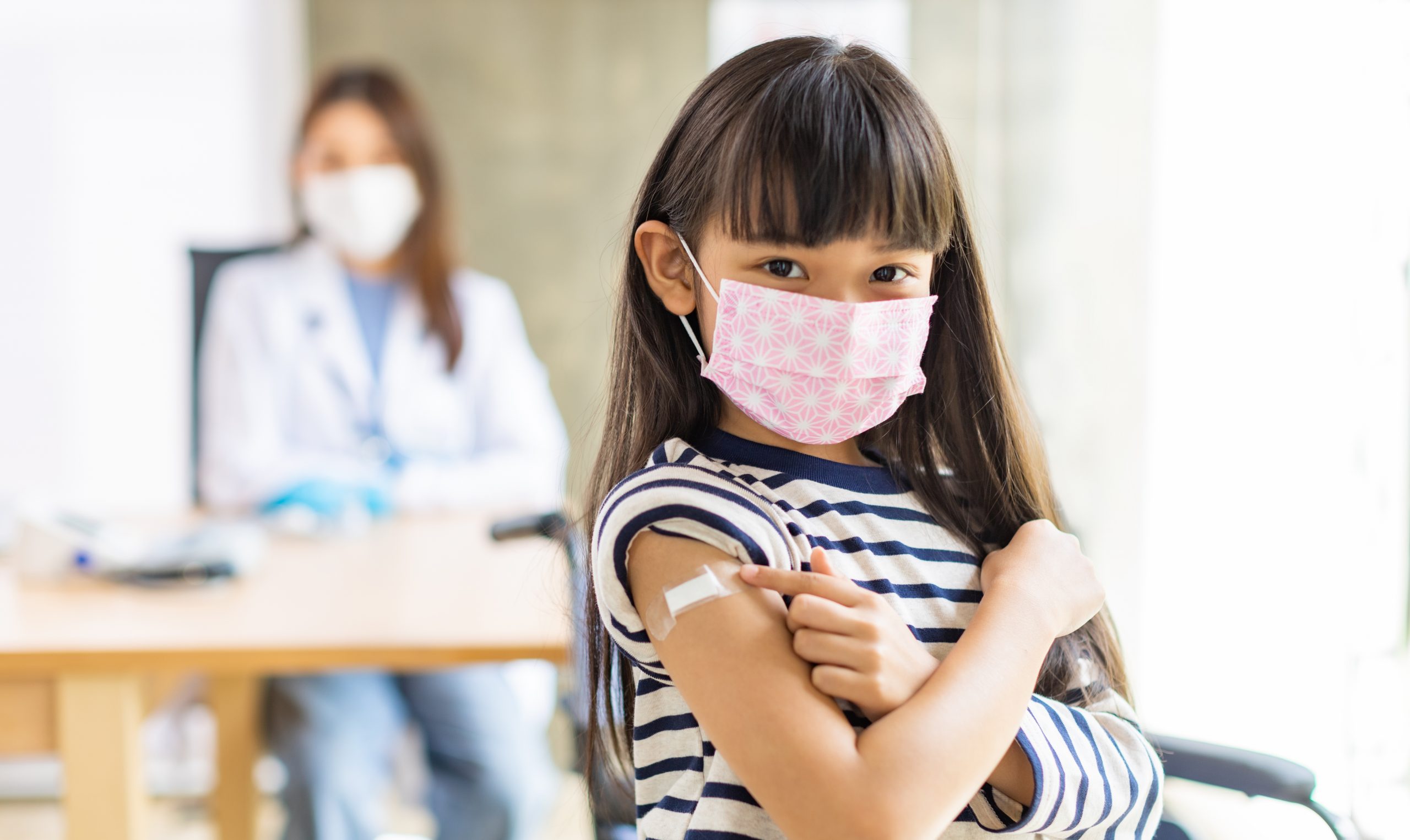 Winter weather means that snow, holidays, and the common cold season are in full swing. Most winter illnesses are caused by viruses — including RSV, influenza, and yes… COVID-19. While most cases of winter illness in children are mild, sometimes they can be severe or lead to complications. Thankfully, mild cases can be easily treated and prevented at home. Plus, there are many ways to keep your kids healthy during cold and flu season!
Winter weather means that snow, holidays, and the common cold season are in full swing. Most winter illnesses are caused by viruses — including RSV, influenza, and yes… COVID-19. While most cases of winter illness in children are mild, sometimes they can be severe or lead to complications. Thankfully, mild cases can be easily treated and prevented at home. Plus, there are many ways to keep your kids healthy during cold and flu season!
Keeping the Germs Away
Do your best to avoid winter illness by preventing the spread of germs as much as possible. This includes washing hands often – especially after your child comes home from daycare or school. Cover your nose and mouth when coughing or sneezing. Similarly, avoid touching your mouth, nose, and eyes. Many viruses can survive on dormant surfaces, so regularly disinfect hard surfaces, commonly touched objects, and toys.
The easiest protection you can take is to vaccinate your child against the flu and COVID-19. This is essential for preventing winter illness, especially for children with underlying diseases including asthma, heart disease, diabetes, or any other complex medical condition. And when in doubt, keep your child home from school or daycare if they are ill or showing symptoms to keep the germs from spreading.
Symptoms And Treatment
These viruses can lead to many symptoms ranging from a runny nose to difficulty breathing. It is also important to remember that for most instances of the common cold, antibiotics will not help as antibiotics are for a bacterial illness only. Here are symptoms to watch for:
| Symptoms | Treatment |
| Runny nose or nasal congestion | For nasal congestion, use nasal saline drops before suctioning your little one’s nose. Saline helps to loosen up the mucus and allows you to get more out when suctioning. This can be especially helpful before feeds or a nap.
For older children, if tolerated, sinus rinses can be a great remedy to rid congestion. |
| Difficulty breathing, coughing, and wheezing | A cough is the body’s natural way of protecting the lungs from mucus build-up. Do not give cough suppressants to most children. If you are considering giving honey as a home remedy, remember that honey should never be given to a child less than one-years-old.
If your child has a barky cough or is diagnosed with croup, try having them breathe in the cold air outside or from the freezer. Keep in mind that it is common for a cough to last weeks after initial illness; try to be patient. |
| Fever | Tylenol or Ibuprofen
Do not give aspirin |
| Dehydration | Increase intake of fluids like water. Make sure your child is urinating at least 3-4 times in a 24-hour period. |
| Loss of appetite | It is okay if your child does not want to eat solid foods, however, it is important that they continue to drink plenty of fluids like water. |
| Sore throat | For the older kids, cough drops/lozenges and gargling salt water can help soothe a sore throat. |
Don’t Fall for Common Cold Myths
There are many myths that surround the common cold, so don’t be fooled! The color or consistency of your child’s mucus is not indicative of a bacterial infection. It is okay to receive vaccinations when mildly ill or with a low-grade temperature. And contrary to my own mother’s advice, you don’t catch a cold from simply going outside with wet hair, and drinking a lot of orange juice will not prevent you from getting sick.
Most cases of the mild cold can be safely treated at home with a few easy remedies and supportive measures. The most common complications requiring immediate attention or evaluation include dehydration, respiratory distress, or secondary infections. So, keep track of your child’s urinary output and monitor for signs of increased difficulty breathing (including fast and heavy breathing, using the muscles between the ribs to breath or flaring of the nostrils). Bring your child in for evaluation if the illness lasts longer than two weeks, if fevers last longer than four days, or if your child seemed to be doing better before they got worse again. Schedule an appointment or find a provider near you.
 About the author: Stephanie O’Brien, DO, is a general pediatrician at MercyOne Clive Pediatric Care. She recently joined the clinic after graduating from residency and is looking forward to building her practice in the Des Moines area. She is passionate about preventive medicine and pediatric development. In her spare time, she enjoys spending time with her family and her newborn baby girl.
About the author: Stephanie O’Brien, DO, is a general pediatrician at MercyOne Clive Pediatric Care. She recently joined the clinic after graduating from residency and is looking forward to building her practice in the Des Moines area. She is passionate about preventive medicine and pediatric development. In her spare time, she enjoys spending time with her family and her newborn baby girl.
Connect with MercyOne Des Moines Medical Center
 Website: MercyOne.org/desmoines
Website: MercyOne.org/desmoines
Twitter: @MercyOne_Iowa
Facebook: @mercyonedesmoines
Instagram: @mercyone_iowa
This article is part of a series of sponsored articles by MercyOne Des Moines Medical Center
COVID-19 Vaccinations While Pregnant and Breastfeeding
Important Facts about Postpartum Depression
Concussions in Student-Athletes and Adolescents
Your First Mammogram, Explained
GE Reflux: A medical diagnosis that’s literally hard to swallow
Understanding Necrotizing Enterocolitis
Facts About COVID-19 Vaccination For Children 12+
How Genetics Impact Your Pregnancy
COVID-19 and Mammograms: What you need to know
Period Pain? It Might Be Endometriosis
Is it Perimenopause or Am I Going Crazy?!
















